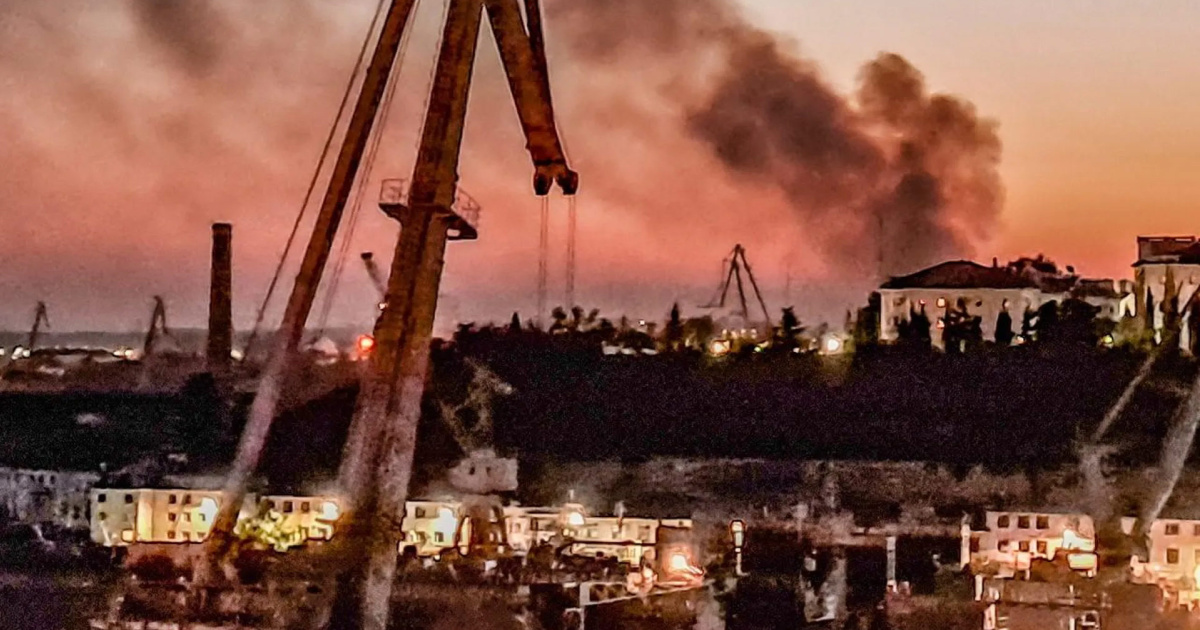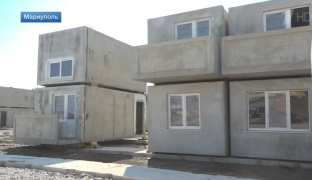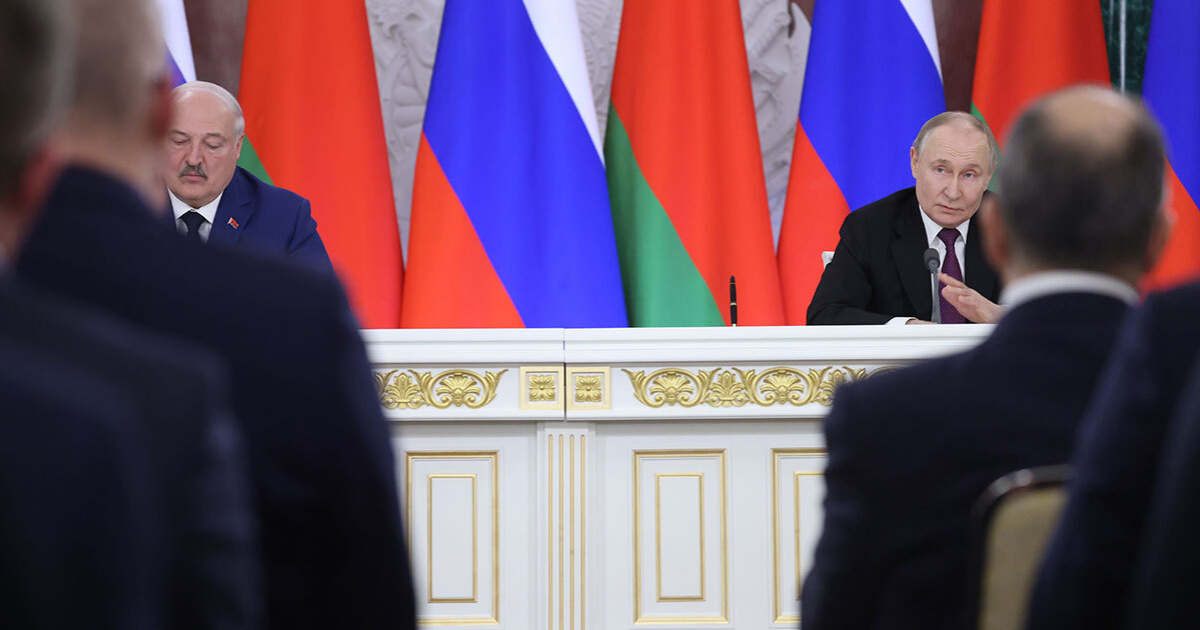
During the night of March 24, the occupied city of Sevastopol faced the most extensive missile attack since the full-scale war began. Even the occupying authorities acknowledged this. The russians reported over ten intercepted missiles (some sources mention 30 missiles) over the city, and according to eyewitnesses, there were dozens of powerful explosions of "unbelievable strength".
According to "governor" Mikhail Razvozhaev, Sevastopol recorded hits on three residential buildings and damage to the transportation infrastructure as a result of the nighttime missile attack. Naturally, there was no mention of any damage to military facilities, ships, or aircraft.
Ukrainian military and intelligence agencies were more forthcoming. According to their information, during the Ukrainian missile strike on the night of March 24 in annexed Sevastopol, four ships of the russian Black Sea Fleet were damaged. Additionally, the main communication node of the russian Black Sea Fleet's special communications was hit, and according to some reports, several military aircraft were damaged.
"This has never happened before. Firstly, there were many explosions, definitely more than twenty; at some point, I stopped counting. And it wasn't just anti-aircraft fire; it was all mixed up. Secondly, the explosions were very powerful; I don't remember such strong explosions in the past two years. Thirdly, the attack lasted for a long time, which also made a strong impression. It felt like the entire city was being torn apart from all sides", - said Sevastopol resident Raisa to OstroV.
"Everyone is posting videos of explosions in the city center, but the main sounds were coming from other districts that are difficult to film, if you know what I mean", - she clarified, referring to military facilities outside the city.
According to another eyewitness, the city’s air raid alarm started almost immediately with the sounds of explosions, and in some areas, it was not heard at all. Most bomb shelters were closed at such a late hour, so people had no choice but to endure the attack at home.
"I remember being scared. It's one thing when I used to hear a few explosions in the distance, but it's completely different when you hear it like that. Then I felt what war is like. However, several questions immediately arose: how were these missiles launched, especially in such quantities, if according to our official sources, all the enemy's weaponry, planes, and warehouses have been destroyed? I don't sympathize with Ukraine and don't consider it to be a peacemaker, but our side's propaganda has also gone too far. In any case, my family and I will be moving to mainland russia", - said Sevastopol resident Sergei.
Against the backdrop of the ongoing attacks on the peninsula, there has been increased advertising for home and car insurance against drone attacks and incoming projectiles.
OstroV investigated what insurance companies offer in Crimea and uncovered some "pitfalls".
The market has perked up
Several sources in occupied Crimea have noted an increase in messages regarding life and property insurance since the beginning of 2024.
"Advertisements for home insurance specifically against drones keep popping up on Telegram and VKontakte social networks. It has become a new popular business. I've heard about it before, but I never took it seriously. However, over the past couple of months, those ads keep appearing here and there. After the recent attack, when windows were shattered in many houses, it's worth considering because there's no faith in the local authorities. It's better to pay 5,000 to 6,000 rubles a year and be sure that they'll replace my windows and cover repairs. But for now, I'm just thinking about it; let's see what happens next. After all, there's no such thing as extra money", - said Sevastopol resident Svetlana to OstroV.
According to russian media, there has been an increase in demand for insurance against drone strikes and the falling of unmanned aerial vehicles in russia recently. In connection with this, some participants in the insurance market offer expanded options for apartment insurance packages, which include terrorism risks (drone attacks as such), while others suggest including simply the threat of "falling flying objects" in the insurance coverage.
For example, at Yugoria company, there has been noticed an increase in requests for such insurance in the moscow oblast recently. The regular property insurance products offered by the company include the risk of falling foreign objects, including drones. However, if the event is deemed a terrorist act, it may be excluded from coverage, clarified the press service. However, for an additional fee, customers can purchase coverage for this threat as well.
Sovcombank Insurance also offers similar conditions. According to russian media, over the past few months, demand from legal entities for protection against terrorism and sabotage has increased by about 10%. Experience shows that high-profile events always trigger a temporary surge in interest in such protection, explained the company.
Data from the unified contact center of Rosgosstrakh indicate that citizens planning to insure their homes are increasingly inquiring whether the coverage includes risks of terrorist attacks and drone strikes. The company also noted that customers have been more frequently seeking clarification regarding the protection of their policies against such threats in recent months. However, the insurer's press service emphasized that protection does not apply in areas where a state of emergency is declared or military actions are taking place. Military risks are considered exceptions, which was also confirmed by other participants in the insurance market.
One of russia's largest insurance companies, VSK, began offering separate insurance policies against the fall of combat drones and unmanned aerial vehicles at the end of 2023.
"Housing insurance programs include a wide range of risks. It is worth considering that the circumstances of incidents vary, and overall program content and payout conditions may differ. VSK offers specialized policies aimed at financial protection in case of damage caused by the fall of aerial vehicles. Having such insurance guarantees monetary compensation to the victim in case of emergencies, covering not only structural elements but also interior finishing and movable property. You can insure both apartments and houses by purchasing a separate product or as an additional option when insuring real estate against classic risks", - said Olga Sorokina, a member of the VSK Board of Directors.
Features
Not long ago, in Crimea and Sevastopol, one insurance company presented the "Antiterror" package, which includes insurance against terrorism, sabotage, shell strikes, and drone attacks.
Residents of Crimea can insure their lives, property, and vehicles with this insurance company for 3,000 rubles (33 USD), with payouts of up to 1 million rubles (10,800 USD). It is noteworthy that in the same company, one can insure a private house for 1,500 rubles per year, although the insurance will not cover "military incidents".
The coverage area of this program is limited to moscow, St. Petersburg, moscow and Leningrad oblasts, as well as Crimea and Sevastopol. Neither "new regions" (occupied parts of the Donetsk, Luhansk, Kherson, and Zaporizhzhia oblasts), nor even the front-line russian regions (Belgorod, Kursk) are included in the program.
After the latest large-scale attack on Sevastopol, the company even issued a separate statement urging the affected individuals to seek compensation for damages. Of course, if you are insured under the "Antiterror" program.
OstroV’s journalist contacted this company and, posing as a local resident, inquired about what exactly the insurance policy covers. It took several attempts to get through, as the line was constantly busy.
"In the past two days, our phone has been ringing off the hook with people wanting to insure their homes because of the recent events. You can apply for a standard policy online, and bring the documents later to make copies. In the event of an insurance claim, you will contact us, our specialists will assess the damage, and you will be compensated up to 1 million rubles, which may take up to 2-3 months. The policy also covers the insured person's medical treatment", - they told us.
When asked if there have been any cases of payouts yet, they answered negatively. However, they elaborated on what this policy does not cover. This includes losses and risks resulting from:
- Military actions, civil war, civil unrest, various kinds of mass disorders, strikes or lockouts, as well as actions by government authorities aimed at their cessation;
- Service of the insured person in any armed forces and formations;
- Participation of the insured person in military actions, maneuvers, or other military events, invasions, combat actions (regardless of whether war has been declared or not), actions of armed formations, riots, mutinies, uprisings, revolutions, civil unrest, political demonstrations, unauthorized rallies, civil wars, terrorist acts (according to Article 205 of the Criminal Code of the russian federation), strikes;
- Effects of nuclear energy in any form, chemical contamination, bacteriological contamination.
"You can definitely count on compensation for repairing your apartment in the event of rocket and drone shrapnel hits, that's the most important thing", - the company assured.
But such a "package" is more of an exception to the rule. Most russian companies offer drone strike insurance as an additional option to property insurance. For example, such an option is available with Alfastrakhovanie. The insurance covers the fall of UAVs and other flying objects as a result of terrorist acts, if the event is recognized as such by government authorities. The company notes that there are no territorial exceptions for such a policy.
OstroV contacted the company and asked for more details about drone insurance. Here's what they told us:
1. If it's a drone without weaponry (private for photography, etc.), then the incident will be insured under the risk of "falling of flying apparatuses and their parts".
2. If the drone is military, and its attack is recognized by competent authorities as a terrorist act, then the event will be recognized as insured if the contract includes the corresponding additional risk.
3. If in the case of military action – it is not considered an insured event, it is an exclusion from insurance coverage.
"So, the first point will be covered, for the second point, you need to contact the office to have the policy issued with an additional risk, and the third case cannot be covered by the policy", - they explained to us.
Additionally, we were denied insurance against projectile falls.
"You can contact the office to inquire about the possibility of obtaining a policy with this risk", - the company summarized.
Therefore, although practically all russian companies offer the option of insurance against the fall of flying apparatuses, this applies only to "non-combat use apparatuses". For insurance against combat UAVs, you will have to pay extra.
An additional payment for the risk of damage or loss of property due to military actions can be found in some insurance companies that offer their services in Crimea. The average cost is 1500-3000 rubles in addition to the main sum for property insurance. For example, in the company Ingosstrakh, you can insure an apartment in Sevastopol for 3660 rubles (40 USD), but you will have to pay an additional 1550 rubles (17 USD) for military risks, which is almost 50% of the total insurance. Of all the additional options, "risk of damage or loss of property due to military actions" is the most expensive.
At OstroV’s request, a resident of Sevastopol visited one of the popular insurance companies in Crimea (the name and city are not disclosed for security reasons) to find out how to insure an apartment, car, and life against the possible fall of combat UAVs or missile strikes.
"They were very surprised by my request. They said I was the first to come to them with such a question. A pleasant employee explained that this issue had been under consideration for a long time, but the company had not come to a decision because of many bureaucratic procedures. The maximum they could offer me was insurance against the fall of any objects from above: icicles, bricks, branches, or regular drones. I persisted and mentioned that their competitors were already actively insuring against military actions, to which she sighed and explained that no one would see these payouts because there is no legislative basis. If they insure against a terrorist act, there must be a decision to initiate a criminal case under the corresponding article and so on. Everything else is just pretty words and promises they'll feed you. It's a reputable insurance company, so I have no reason not to trust them", - he told OstroV.
By Andriy Andrieyev, OstroV




